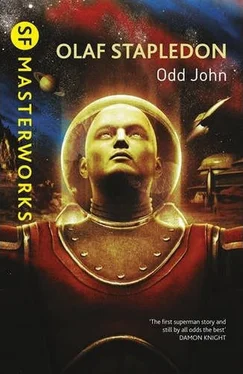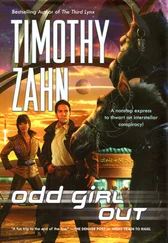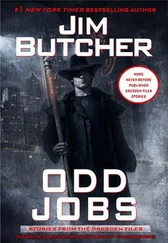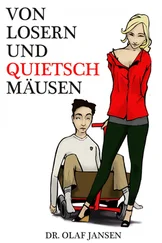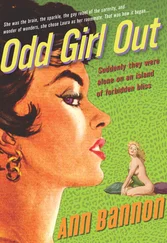Olaf Stapledon - Odd John
Здесь есть возможность читать онлайн «Olaf Stapledon - Odd John» весь текст электронной книги совершенно бесплатно (целиком полную версию без сокращений). В некоторых случаях можно слушать аудио, скачать через торрент в формате fb2 и присутствует краткое содержание. Город: London, Год выпуска: 2012, ISBN: 2012, Издательство: Hachette UK, Жанр: Фантастика и фэнтези, на английском языке. Описание произведения, (предисловие) а так же отзывы посетителей доступны на портале библиотеки ЛибКат.
- Название:Odd John
- Автор:
- Издательство:Hachette UK
- Жанр:
- Год:2012
- Город:London
- ISBN:9780450038570
- Рейтинг книги:5 / 5. Голосов: 1
-
Избранное:Добавить в избранное
- Отзывы:
-
Ваша оценка:
- 100
- 1
- 2
- 3
- 4
- 5
Odd John: краткое содержание, описание и аннотация
Предлагаем к чтению аннотацию, описание, краткое содержание или предисловие (зависит от того, что написал сам автор книги «Odd John»). Если вы не нашли необходимую информацию о книге — напишите в комментариях, мы постараемся отыскать её.
Odd John — читать онлайн бесплатно полную книгу (весь текст) целиком
Ниже представлен текст книги, разбитый по страницам. Система сохранения места последней прочитанной страницы, позволяет с удобством читать онлайн бесплатно книгу «Odd John», без необходимости каждый раз заново искать на чём Вы остановились. Поставьте закладку, и сможете в любой момент перейти на страницу, на которой закончили чтение.
Интервал:
Закладка:
While he was wrestling with this horror, and before he had triumphed over it, there came upon him the realization that for members of the normal species every pain, every distress of body and of mind, had this character of insurmountable hideousness which he himself had found only in respect of the highest reach of his experience, and was determined to conquer even there. It came as a shocking revelation to him that normal human beings were quite incapable of detachment and zest even in sufferings upon the personal plane. In fact he realized clearly for the first time the torture that lies in wait at every turn for beings who are more sensitive and more awakened than the beasts and yet not sensitive enough, not fully awakened. The thought of the agony of this world of nightmare-ridden half-men crushed him as nothing else had ever done.
His attitude to the normal species was undergoing a great change. When he had fled into the wilderness his dominant reaction was disgust. One or two of us he unreasonably cherished, but as a species he loathed us. He had recently seen too much, lived at too close quarters, been fouled and poisoned. His researches into the world of men had been too devastating for a mind which, though superior in quality, was immature and delicate. But the wild had cleansed him, healed him, brought him to sanity again. He could now put Homo sapiens at arm’s length for study and appreciation. And he saw that, though no divinity, the creature was after all a noble and even a lovable beast, indeed the noblest and most lovable of them all; nay further, that its very repulsiveness lay in its being something more than beast, but not enough more. A normal human being, he now ungrudgingly admitted, was indeed a spirit of a higher order than any beast, though in the main obtuse, heartless, unfaithful to the best in himself.
Realizing all this, and realizing for the first time the incapacity of Homo sapiens to accept his pains and sorrows with equanimity, John was overwhelmed with pity, a passion which he had not hitherto experienced in any intensity; save on particular occasions, as when Judy’s dog was run over by a car, and when Pax was ill and in great pain. And even then his pity was always tempered by his assumption that every one, even little Judy, could always “look at it from outside and enjoy it,” as he himself could do.
For many days John seems to have been at grips with this newly realized problem of the absoluteness of evil, and the novel fact that beings that were tissues of folly and baseness could yet be pitiable and, in their kind, beautiful. What he sought was not an intellectual solution but an emotional enlightenment. And this, little by little, he seems to have gained. When I pressed him to tell me more of this strange enlightenment, he said it was just “seeing my own fate and the piteous plight of the normal species in the same way as I had always, since I was a kid, seen bumps and burns and disappointments. It was a case of delighting in their clear-cut form, and in their unity with the rest of things, and the way they—how shall I put it?—deepened and quickened the universe.” Here, I remember, John paused, then repeated, “Yes, deepened and quickened the universe,—that’s the main point. But it wasn’t a case of understanding that they did so, but just seeing and feeling that they did so.”
I asked him if what he meant was some kind of coming face to face with God. He laughed, and said, “What do I know about God? No more than the Archbishop of Canterbury, and that’s nothing whatever.”
He said that when McWhist and Norton came upon him in the cave he was “still desperately puzzling things out,” and that their presence filled him just for a moment with the old disgust at their species, but that he had really done with all that long ago, and when he saw them there, looking so blank, he remembered his first close meeting with the stag. And suddenly the stag seemed to symbolize the whole normal human species, as a thing with a great beauty and dignity of its own, and a rightness of its own, so long as it was not put into situations too difficult for it. Homo sapiens , poor thing, had floundered into a situation too difficult for him, namely the present world-situation. The thought of Homo sapiens trying to run a mechanized civilization suddenly seemed to him as ludicrous and pathetic as the thought of a stag in the driving-seat of a motor-car.
I took this opportunity of asking him about the “miracle” with which he had so impressed his visitors. He laughed again. “Well,” he said, “I had been discovering all sorts of odd powers. For instance I found that by a kind of telepathy I could get in touch with Pax and talk to her. It’s true. You can ask her about it. Also I could sometimes feel what you were thinking about, though you were too dull to catch my messages and respond to me. And I had made queer little visits to events in my own past life. I just lived them again, with full vividness, as though they were ‘now.’ And in a telepathic way I had begun to get something very like evidence that after all I was not the only one of my kind in the world, that there were in fact quite a number of us scattered about in different countries. And then again, when McWhist and Norton appeared in the cave I found that by looking at them I could read the whole of their past lives in their faces, and I saw how thoroughly sound they both were within the limitations of their kind! And I think I saw something about their future, something that I won’t tell you. Then, when it was necessary to impress them, I suddenly got the idea of lifting the roof and clearing away the blizzard so that we could see the stars. And I knew perfectly well that I could do it, so I did it.”
I looked at John with misgiving. “Oh yes,” he said, “I know you think I’m mad, and that all I did was to hypnotize them. Well, put it that I hypnotized myself too, for I saw the whole thing as clearly as they did. But, believe me, to say I hypnotized us all is no more true and no less true than to say I actually shifted the rock and the blizzard. The truth of the matter was something much more subtle and tremendous than any plain little physical miracle could ever be. But never mind that. The important thing was that, when I did see the stars (riotously darting in all directions according to the caprice of their own wild natures, yet in every movement confirming the law), the whole tangled horror that had tormented me finally presented itself to me in its true and beautiful shape. And I knew that the first, blind stage of my childhood had ended.”
I had indeed sensed a change in John. Even physically he had altered strikingly during his six months’ absence. He was harder, more close-knit; and there were lines on his face suggestive of ordeals triumphantly passed. Mentally, though still capable of a most disconcerting impishness, he had also acquired that indefinable peacefulness and strength which is quite impossible to the adolescent of the normal species, and is very seldom acquired even by the mature. He himself said that his “discovery of sheer evil” had fortified him. When I asked, “how fortified?” he said, “My dear, it is a great strength to have faced the worst and to have felt it a feature of beauty. Nothing ever after can shake one.”
He was right. By what magic he did it I do not know, but in all his future, and in the final destruction of all that he most cherished, he accepted the worst not with resignation, merely, but with a strange joy that must remain to the rest of us incomprehensible.
I will mention one other point that emerged in my long talk with John. It will be remembered that after performing his “miracle” he apologized for it. I questioned him on this matter, and he said something like this: “To enjoy exercising one’s powers is healthy. Children enjoy learning to walk. Artists enjoy painting pictures. As a baby I exulted in the tricks I could do with numbers, and later in my inventions, and recently in killing my stag. And of course the full exercise of one’s powers really is part of the life of the spirit. But it is only a part, and sometimes we are inclined to take it as the whole purpose of our existence, especially when we discover new powers. Well, in Scotland, when I began to come into all those queer powers that I mentioned just now, I was tempted to regard the exercise of them as the true end of my life. I said to myself, ‘Now at last, in these wonderful ways, I shall indeed advance the spirit.’ But after the momentary exaltation of lifting the rock I saw clearly that such acts were in no sense the goal of the spirit, but just a by-play of its true life, amusing, and sometimes useful, and often dangerous, but never themselves the goal.”
Читать дальшеИнтервал:
Закладка:
Похожие книги на «Odd John»
Представляем Вашему вниманию похожие книги на «Odd John» списком для выбора. Мы отобрали схожую по названию и смыслу литературу в надежде предоставить читателям больше вариантов отыскать новые, интересные, ещё непрочитанные произведения.
Обсуждение, отзывы о книге «Odd John» и просто собственные мнения читателей. Оставьте ваши комментарии, напишите, что Вы думаете о произведении, его смысле или главных героях. Укажите что конкретно понравилось, а что нет, и почему Вы так считаете.
